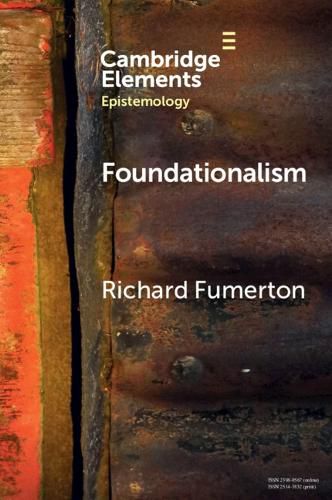Readings Newsletter
Become a Readings Member to make your shopping experience even easier.
Sign in or sign up for free!
You’re not far away from qualifying for FREE standard shipping within Australia
You’ve qualified for FREE standard shipping within Australia
The cart is loading…






Foundationalism is a view about the structure of knowledge and justification. The heart of the thesis is the claim that if there is any knowledge or justified belief at all, then there is a kind of knowledge and justified belief that does not require inference from something else known or justifiably believed. This Element begins by exploring abstract arguments for foundationalism and against proposed alternatives. It then explores disagreements among foundationalists about how to understand foundational knowledge and justified belief, what is plausibly included in the foundations, and what is required for legitimate inference from foundations to the rest of what we believe. The author argues for the conclusion that one can combine insights captured by different versions of foundationalism by making a distinction between ideal justification and justification that falls short of that ideal.
$9.00 standard shipping within Australia
FREE standard shipping within Australia for orders over $100.00
Express & International shipping calculated at checkout
Foundationalism is a view about the structure of knowledge and justification. The heart of the thesis is the claim that if there is any knowledge or justified belief at all, then there is a kind of knowledge and justified belief that does not require inference from something else known or justifiably believed. This Element begins by exploring abstract arguments for foundationalism and against proposed alternatives. It then explores disagreements among foundationalists about how to understand foundational knowledge and justified belief, what is plausibly included in the foundations, and what is required for legitimate inference from foundations to the rest of what we believe. The author argues for the conclusion that one can combine insights captured by different versions of foundationalism by making a distinction between ideal justification and justification that falls short of that ideal.